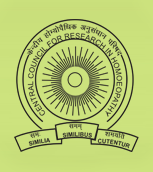Indian Journal of Research in Homoeopathy
Keywords
Apoptosis, Bax, Bcl-2, cancer, Homoeopathy, NFκB, p300, p53, sulphur
Article Type
Original Article
Abstract
Adverse side effects of chemotherapy during cancer treatment have shifted considerable focus towards therapies that are not only targeted but are also devoid of toxic side effects. We evaluated the antitumorigenic activity of sulphur, and delineated the molecular mechanisms underlying sulphurinduced apoptosis in non-small cell lung carcinoma (NSCLC) cells. A search for the underlying mechanism revealed that the choice between the two cellular processes, NFκBp65-mediated survival and p53-mediated apoptosis, was decided by the competition for a limited pool of transcriptional coactivator protein p300 in NSCLC cells. In contrast, sulphur inhibited otherwise upregulated survival signaling in NSCLC cells by perturbing the nuclear translocation of p65NFκB, its association with p300 histone acetylase, and subsequent transcription of Bcl-2. Under such anti-survival condition, induction of p53-p300 cross-talk enhanced the transcriptional activity of p53 and intrinsic mitochondrial death cascade. Overall, the findings of this preclinical study clearly delineated the molecular mechanism underlying the apoptogenic effect of the non-toxic homeopathic remedy, sulphur, in NSCLC cells.
Digital Object Identifier
10.4103/0974-7168.172876
Publisher
Wolters Kluwer India Pvt. Ltd.
How to cite this article
Saha S, Pushpak B, Guha D, et al. Republished: Sulphur alters NFκB-p300 cross-talk in favour of p53-p300 to induce apoptosis in non-small cell lung carcinoma. Indian J Res Homoeopathy 2015;9(4):288-300. doi: 10.4103/0974-7168.172876


